Anxiety is a common mental health condition in the United States. According to the National Institute of Mental Health (NIMH), an estimated 19.1% of U.S. adults (about 40 million people) had an anxiety disorder in the past year. Additionally, anxiety disorders are the most common mental health disorders in the United States, affecting about 18% of the population.
"Anxiety" is a broad term that can include a variety of conditions such as:
- generalized anxiety disorder
- social anxiety disorder
- panic disorder
- and others
If you struggle with anxiety, then you know that these disorders can cause significant distress and impairment in daily functioning.
What's more, is that anxiety disorders are also often seen along other mental health conditions such as depression, which can make treatment more complex.
If you're here, you may have heard that reishi mushrooms (Ganoderma lucidum) have been used in Traditional Chinese Medicine for centuries to help reduce anxiety.
In this article, we'll cover what's known about reishi as a possible supplement for anxiety, common uses, supplement forms, dosages, and some of the best products to try.
Let's dive in.
What are reishi mushrooms, exactly?
Reishi mushrooms, also known as Ganoderma lucidum, are a type of medicinal mushroom that have been used in traditional Chinese medicine for thousands of years. They are typically consumed in the form of supplements, teas, or tinctures, and are said to have a variety of health benefits, such as boosting the immune system, reducing stress and anxiety, and improving heart health.
Check out our guide to the possible benefits of reishi mushrooms if you want to learn more.
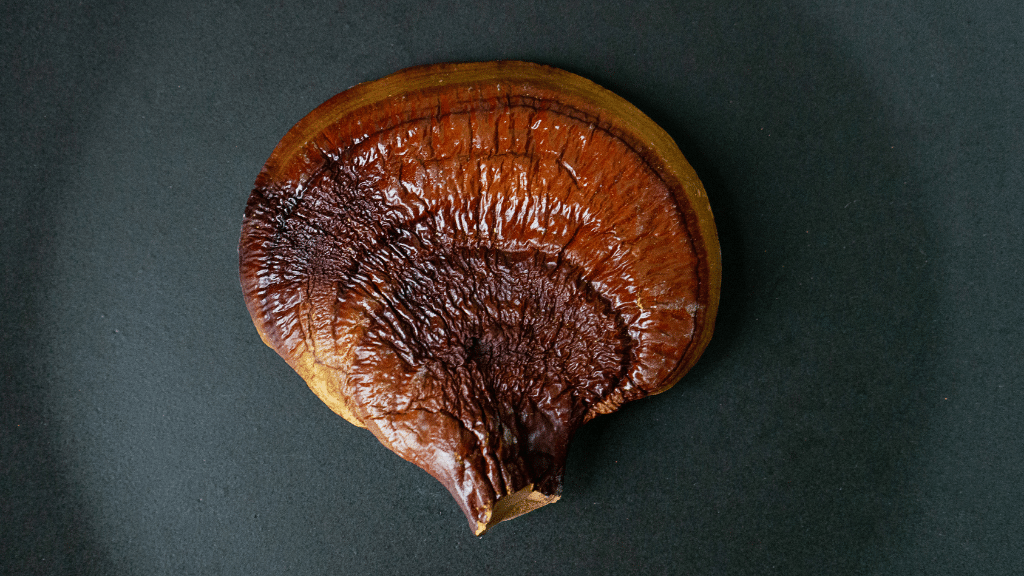
Where are reishi mushrooms found?
Reishi can be found in many parts of the world. They are native to Asia and North America, and are commonly found in the wild growing on hardwood trees such as oak, maple, and elm.
In fact, we found some wild reishi growing just down the road here in southern New Hampshire!
Reishi mushrooms are also grown commercially and can be found in many health food stores and online retailers in the form of supplements, powders, teas, and tinctures. The fruiting body and mycelium of the mushroom can be used to make supplements.
Remember to always work with a professional when collecting wild mushrooms. Proper identification of the species can help you from consuming toxic mushrooms by mistake. It's also important to consider that wild-harvested mushrooms may contain pollutants from fertilizers, pesticides, and more.
Reishi are a popular option at many mushroom farms. Check out a local grower near you!
How can reishi help with anxiety?
Reishi mushrooms have been used in Traditional Chinese medicine for nearly 2,000 years to help reduce stress and anxiety. Recently, interest in the use of medicinal mushrooms in the United States has exploded.
Research on reishi mushrooms for anxiety is extremely limited and is mostly done on animals. But still, many herbalists and naturalists anecdotally report some success using reishi as a supporting treatment for those with anxiety disorders.
What is it about reishi mushrooms that helps with anxiety?
The reason reishi mushrooms - among others - are so popular in traditional medicine is because they are packed with natural compounds.
Some studies have suggested that compounds in reishi mushrooms, such as triterpenoids and polysaccharides, may have a calming effect on the central nervous system, which could potentially help reduce symptoms of anxiety.
However, more research is needed to understand the mechanisms by which reishi mushrooms may help with anxiety.
Based on what we know today, it's unlikely that reishi mushrooms can act as a substitute for conventional medical treatment for anxiety and should not be used as such. Always speak with your doctor before incorporating a supplement into your routine.
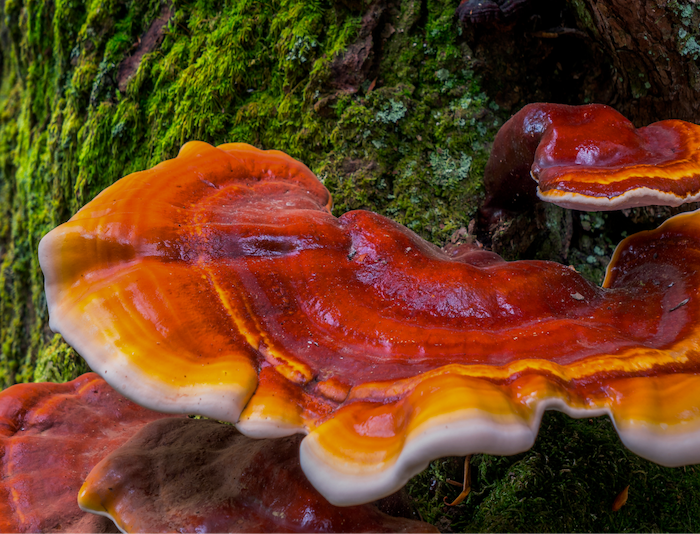
What research has been done on reishi mushrooms for anxiety?
Like we said, research on the effects of reishi mushrooms on anxiety specifically is pretty limited. However, some studies have been done on the effects of reishi mushrooms on stress and mood.
A study in the Journal of Medicinal Food with 132 humans showed that 8 weeks of reishi mushroom therapy reduced fatigue and symptoms of neurasthenia (a medical condition characterized by lassitude, fatigue, headache, and irritability, associated chiefly with emotional disturbance.)
A study published in International Journal of Medicinal Mushrooms showed that "the methanol extract of G. lucidum at a dose of 200 mg/kg, administered orally, shows a significant increase in the average time spent in the open arms of the EPM when compared with the control; this was comparable to the effect of the standard drug (diazepam, 2 mg/kg by mouth)."
Remember, these studies were conducted on animals or in small groups of people, and more research is needed to confirm the effects of reishi mushrooms on anxiety and to understand the mechanisms by which they may work.
What anecdotal insight is known about reishi for anxiety?
Several sources list reishi as being able to open up the crown chakra. According to the Yoga Journal, the crown chakra is "associated with the element of thought, this energy center controls your connection to spirit, as well as your sense of universal consciousness, wisdom, unity, and self-knowledge."
A balance in the crown chakra by taking reishi mushrooms may provide more balance to the mind by opening this particular chakra. Remember, this is anecdotal evidence, so no research supporting this claim from a scienfitic-perspective exists.
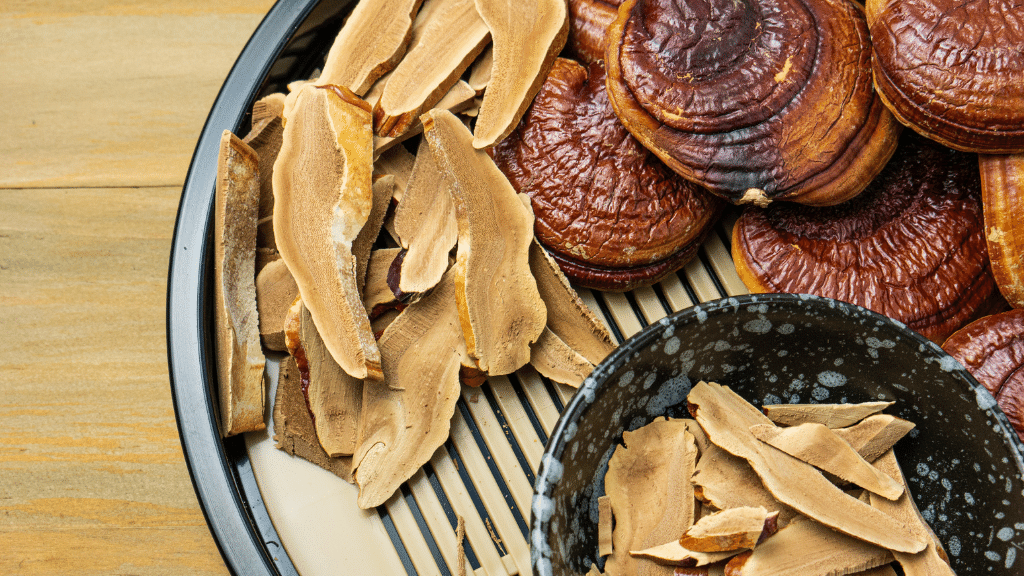
Can reishi help me sleep better?
Yes, it is generally believed that reishi can lead to better sleep for a number of reasons. But more human research needs to be done. For those of us with anxiety, you know that restlessness and lack of sleep can happen alongside anxiety.
By improving balance and homeostasis within the body, a better night’s sleep can be achieved.
Here are the two studies showcasing reishi’s benefit for sleep:
- Ganoderma lucidum promotes sleep through a gut microbiota-dependent and serotonin-involved pathway in mice: In this study, researchers focus on the gut-to-mind connection for sleep. The study showed that administering reishi to rats for four weeks led to significant decreases in sleep latency and increases in sleeping time compared with the control group. Additionally, this study shows that reishi, even when given in regular doses led to no toxicity in the rats. Additionally, reishi may have positive effects on our gut microbiome, which can lead to faster sleep, as is showcased by decreased efficiency of the reishi with rats who were given an antibiotic.
- Extract of Ganoderma lucidum prolongs sleep time in rats: In this study, positive results happened rapidly. Results of this study showed that “three-day administration of GLE significantly increased total sleep time and non-rapid eye movement (NREM) sleep time at a dose of 80 mg/kg (i.g.) without influencing slow-wave sleep or REM sleep in freely moving rats.”
Head over to our guide on using reishi for improved sleep if you want to learn more.
How to take reishi mushrooms for anxiety
There are a number of ways you can incorporate reishi mushrooms into your routine. The first step is to connect with your doctor. There is very limited research about how reishi interacts or compounds traditional anxiety medication.
The best way to take a reishi supplement will depend on the specific product and your individual needs and preferences. Some common forms of reishi supplements include capsules, powders, teas, and tinctures.
- Reishi capsules are one of the most common ways to take reishi. They are convenient, easy to take, and can be found in many health food stores.
- Reishi powders can be added to drinks or food, such as smoothies, soups, or teas, which can make them more palatable. Some people find that the taste of reishi to be quite bitter, so adding it to a drink or food can make it more pleasant to consume.
- Reishi teas have been used traditionally for thousands of years. Taking reishi as a tea is a great way to slow down and enjoy your reishi intake alongside any sweeteners or additives you like
- Reishi tinctures are also available and some people find them to be a more enjoyable way to take the supplement because it's fast and effective.
Check out our complete guide to making reishi tea at home.
.png?width=650&height=545&name=Reishi%20mushroom%203%20(2).png)
How much reishi should I take for anxiety?
As with any supplement, the dosage and how often you take it will depend on the specific product and your individual needs. It is always best to follow the dosage instructions on the product label. Consult with a healthcare professional before starting any supplement regimen.
The average dosage of reishi for anxiety will vary between 500 - 3,000 mg per day depending on the type of supplement, extraction method, and potency of the product.
What are the side effects of reishi for anxiety?
As we said, there is no research which helps us understand how reishi mushrooms, or other medicinal mushrooms, interact with traditional anxiety medications.
Reishi mushrooms are generally considered to be safe when consumed in moderate amounts and as a dietary supplement, but there are some potential side effects to be aware of.
Some people may experience digestive issues such as stomach upset, nausea, or diarrhea when taking reishi supplements. It is also possible to have an allergic reaction, such as hives, itching, or difficulty breathing.
Reishi may also interact with some medications, such as blood thinners, immunosuppressants and anti-coagulants. Reishi may have a blood pressure lowering effect. Consult with a healthcare professional before taking reishi if you are taking blood pressure medication.
As with any supplement, it's important to talk to your healthcare professional before starting to take reishi especially if you have any underlying health conditions or are taking any medications.
Be sure to follow the recommended dosage on the product label.
Stop taking the supplement and seek medical attention if you experience any severe side effects or any allergic reactions.
What other medicinal mushrooms might help with anxiety?
Several other medicinal mushrooms have been traditionally used to help with anxiety and stress:
-
Lion's mane mushroom (Hericium erinaceus) is known to boost cognitive function, and has been found to have anti-anxiety and anti-depressant effects in some studies.
-
Turkey Tail mushroom (Trametes versicolor) has been used in traditional Chinese medicine to help with stress, anxiety and depression.
-
Chaga mushroom (Inonotus obliquus) has been found to have anti-inflammatory and antioxidant properties that can help to reduce stress and anxiety.
-
Cordyceps mushroom (Cordyceps militaris) has been traditionally used to improve energy and endurance. It has also been found to improve mood and cognitive function, as well as reduce stress and anxiety.
What are the best reishi products for anxiety?
If you've talked to your doctor and are ready to try a reishi supplement, it can be hard to know which product is best.
You'll want to look for a trusted brand using excellent mushroom sourcing and extraction methods. Here at Remeday, our team completes extensive research so that we can showcase only the best brands. Here are some of our the top options for reishi mushroom products:
Life Cykel Reishi Tincture
Life Cykel is a small but mighty brand. Because of their size, they're able to really focus in on product quality and potency. They're also one of the most affordable tinctures on the market. We love taking this tincture and think you will, too.
FreshCap Reishi Powder
When it comes to quality, freshness, and potency, FreshCap meets the mark. Reishi powder is perfect to add to teas, coffee, smoothies, and more. They are leaders in mushroom education and take pride in the quality of their products.
Mushroom Revival Reishi Tincture
Mushroom Revival is a trusted US-based brand and is a great option to add to your nightly tea. You won’t find a better brand than Mushroom Revival. These guys know their mushrooms inside-and-out - and they apply that incredible knowledge to their products.
Real Mushrooms Reishi Powder & Capsules
RealMushrooms uses 100% organic, 100% fruiting bodies, and is highly transparent in their sourcing and extract processes. Not to mention their products are third-party lab tested. Powder is ideal to add to teas, smoothies, and more.
We hope you've found this article helpful. If you enjoyed this content please share and subscribe to our educational newsletter: The MorningMush!




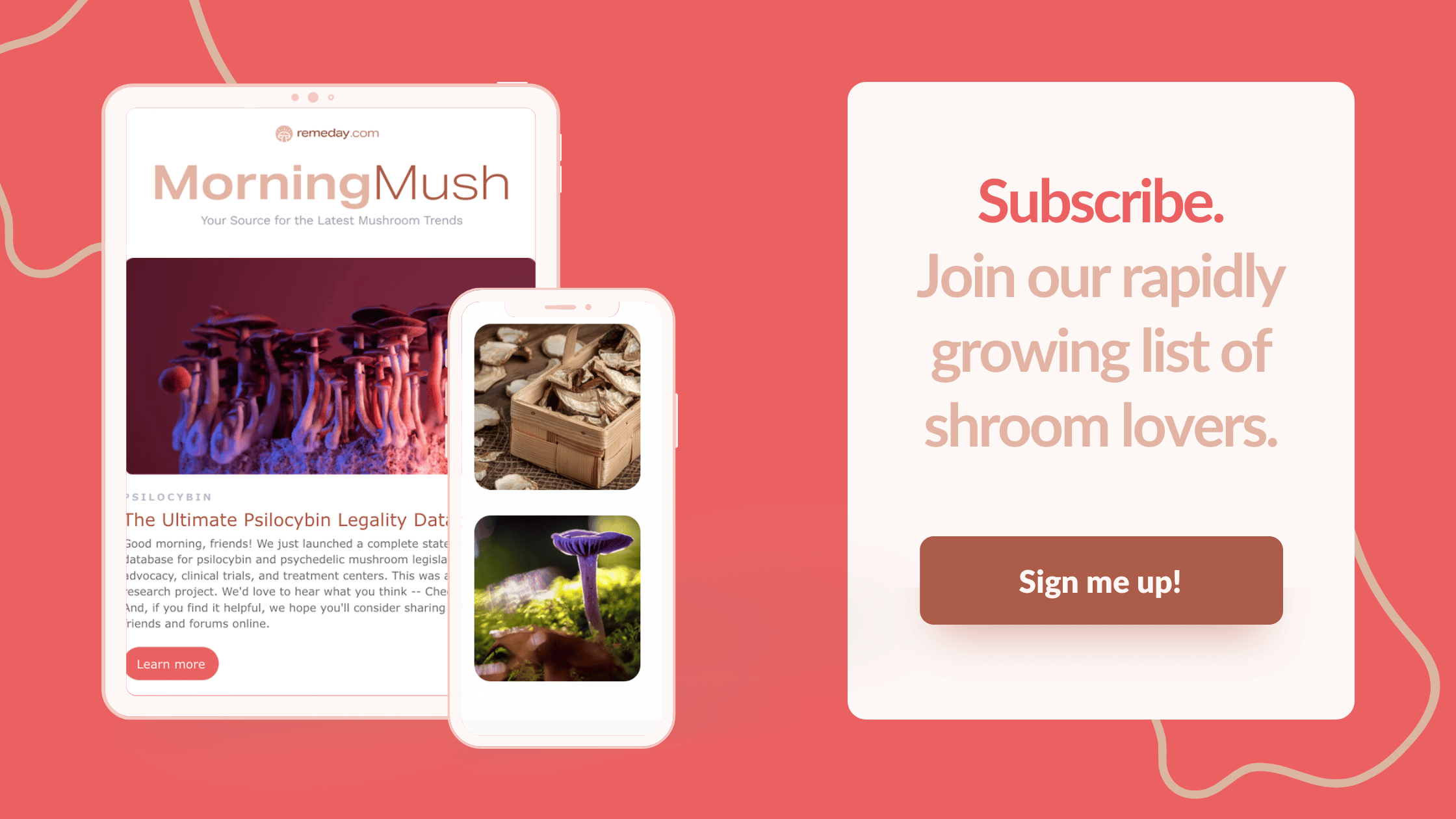
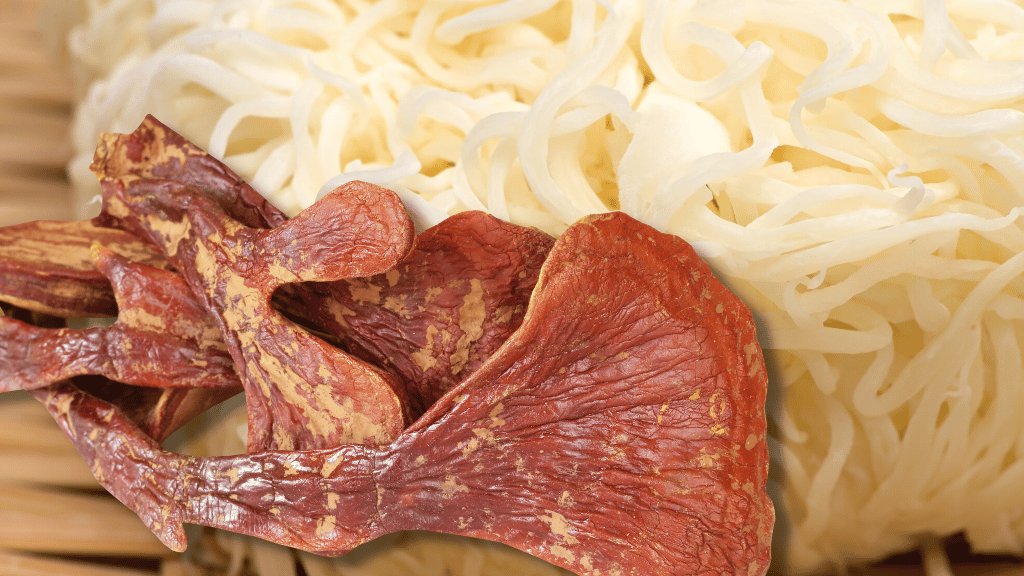
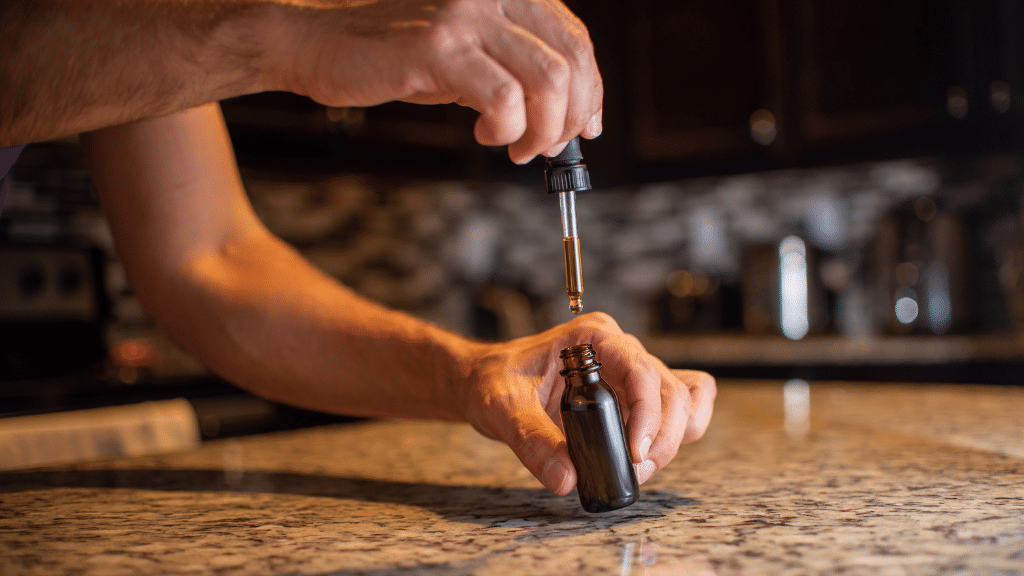


.png)
